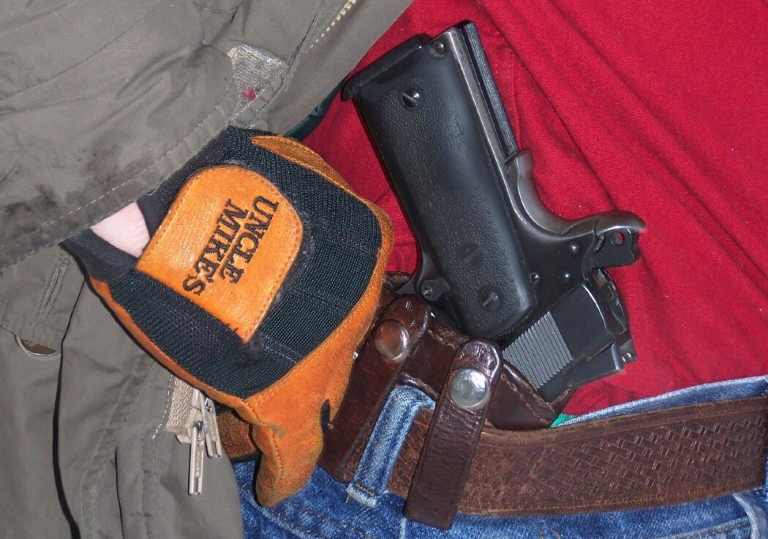
By Dave Workman
Editor-in-Chief
Once again the Second Amendment Foundation and National Rifle Association are paired up in a legal effort, this time submitting an amicus brief to the Massachusetts Supreme Court in support of a New Hampshire man who is challenging the Bay State’s gun permit law.
New Hampshire resident Dean F. Donnell, Jr. was stopped by police in Massachusetts and charged for carrying a firearm without a license. In their 38-page brief, SAF and NRA explain their interest as that of their members’ ability to travel with firearms legally across state lines, to use them for lawful purposes. Massachusetts is among the states with the strictest gun control laws in the nation.
SAF and NRA are represented by attorneys Adam Kraut with SAF in Bellevue, Wash., Joseph G.S. Greenlee and Erin M. Erhardt with NRA in Fairfax, Va., and Edward F. George, Jr., at Edward George & Associates in Arlington, Mass.
“Our brief,” explained Kraut, who also serves as SAF’s executive director, “discusses how there were often exemptions for those traveling from being subject to the same restrictions as residents of a particular state. We note how the licensing scheme in Massachusetts is unduly prejudiced against nonresidents. New nonresident license applications require an in-person appointment in Massachusetts, necessitating an extra (unarmed) trip to the Commonwealth—which, especially for residents of distant states, becomes a barrier to entry that may be financially untenable.”
As noted by BearingArms.com, Massachusetts law allows non-residents to apply for a “temporary license to carry firearms” but this only applies to those coming to the Commonwealth for competition. It is not about self-defense.
“Attorneys for the state of Massachusetts contend that the competition language only applies to non-resident aliens, but non-residents who want to carry must still apply to the state police for a temporary license before they can lawfully bear arms,” the BearingArms report notes.
In their brief, SAF and NRA attorneys observe, “The Commonwealth points to surety and going armed laws as proposed historical analogs. But those laws applied narrowly to individuals who were deemed dangerous and are inapposite to the Commonwealth’s licensing scheme, which applies broadly to the general public. And nothing in Bruen’s ninth footnote, which notes that Bruen left ‘shall-issue’ licensing regimes undisturbed, saves the regulation. Rather, the Commonwealth’s licensing scheme is precisely the type of burdensome regulation the Supreme Court cautioned against. Thus, the Commonwealth’s nonresident licensing law is unconstitutional.”
The brief details laws from some other states, and their history, and their relevance to the Massachusetts case.
“There is no historical tradition that justifies the non-resident licensing scheme now in place in the Commonwealth of Massachusetts,” said SAF founder and Executive Vice President Alan M. Gottlieb. “Looking back, a government license has not been required to exercise the right to carry arms. Such licenses came into existence only in the late 19th Century, and they applied only to the concealed carry of firearms. Open carry was unrestricted.”



